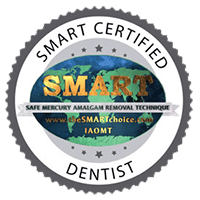How fast can sleep apnea treatment help reduce my risk of complications?
Many patients notice improvements in energy, blood pressure, and mood within weeks of starting treatment.
Do I need a CPAP to manage sleep apnea?
Not always! Oral appliances and Vivos are comfortable, non-invasive options that work well for many people.
Can children experience sleep apnea complications too?
Yes—and they can be serious. Behavior issues, delayed growth, and learning problems may all be connected to poor sleep.
The questionnaire has been designed to determine how you are managing your sleep health and to see what may be affecting your daily life. Take the sleep quiz to see if our sleep apnea solution is right for you.

OR Call (253) 863-7005
18008 State Route 410 East, Suite A
Bonney Lake, WA 98391
Dr. Carla Yamashiro, The Holistic Dentist
Ecologic Dentistry, PLLC







